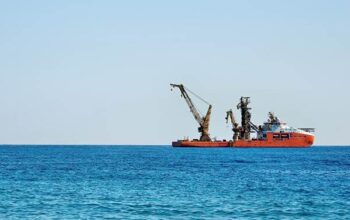In industrial processes, consistency is everything. Whether in chemical manufacturing, food processing, water treatment, or energy generation, pressure vessels play a central role in maintaining system stability. The design and fabrication of pressurised tanks directly affect the reliability and safety of these operations. For this reason, working with experienced pressure tank manufacturers is not just a procurement decision, but a long-term operational strategy. This article discusses how dependable manufacturing standards in pressure tanks contribute to uninterrupted industrial performance.
Meeting Industry-Specific Pressure Demands
Every industry has its own set of operational pressures, temperatures, and flow rates. Inconsistent pressure management can lead to equipment failure, production delays, or safety hazards. Manufacturers that understand sector-specific demands engineer their pressure tanks to meet precise application requirements.
Whether used in compressed air systems, chemical storage, or process mixing, a tank must manage internal pressure without fluctuation. A well-constructed tank ensures stable internal conditions even when external variables shift. This level of reliability helps facilities meet production targets without compromising safety or output quality.
Ensuring Structural Integrity Through Quality Materials
The foundation of any pressurised vessel lies in the materials used during fabrication. Manufacturers that select high-grade steel or specialised alloys based on operational needs provide better protection against corrosion, fatigue, and cracking.
A pressure tank must withstand cyclic loading, where internal pressure rises and falls as part of normal operations. This repeated stress can lead to failure in poorly manufactured tanks. By using tested materials and certified welding practices, manufacturers contribute directly to equipment lifespan and plant stability. This structural integrity is particularly critical in industries where chemical compatibility and environmental exposure are factors.
Reducing Operational Downtime
Unplanned downtime is one of the most disruptive events in any production environment. Leaks, cracks, or pressure imbalances in tanks can trigger full system shutdowns. Reliable pressure tank manufacturers mitigate this risk by following strict production protocols, conducting in-house testing, and adhering to international pressure vessel codes.
Tanks built to meet these standards operate with fewer disruptions. Their performance reduces the frequency of maintenance interventions and emergency repairs. This consistency supports better planning and more efficient use of resources across the plant.
Supporting Pressure Regulation and Flow Control
In systems where fluids or gases need to be delivered at a consistent rate, pressurised tanks act as buffers or storage intermediaries. Inadequate control at this stage can affect downstream equipment and overall process stability.
Manufacturers who build tanks with precise pressure ratings and integrate appropriate fittings allow better regulation of flow and delivery. These tanks are engineered to hold pressure within tight tolerances, preventing sudden surges or drops. This level of control is essential in pharmaceutical and food processing industries, where even minor fluctuations can lead to product inconsistency or waste.
Designing for Safety and Compliance
Safety in pressurised systems is governed by strict regulations. Tank failure can lead to hazardous leaks, contamination, or even explosions. Manufacturers must meet industry codes such as ASME, PED, or API, depending on the application and region.
Pressure tank manufacturers who adhere to these standards embed safety into the product from the start. This includes relief valves, reinforced nozzles, inspection ports, and structural supports. Their attention to design safety helps plant operators maintain compliance and reduce liability risk, ensuring that the equipment functions within safe operational boundaries over its lifetime.
Customisation for Process Integration
Each industrial facility has its own layout, process flow, and system design. Tanks that are difficult to integrate into existing setups can slow installation and reduce operational flexibility. Manufacturers that offer configuration options, such as horizontal or vertical orientation, variable capacities, and custom nozzle arrangements, enable better system integration.
This alignment with plant requirements improves installation timelines and system functionality. Tanks that fit the process help reduce engineering compromises and simplify fluid handling design, resulting in smoother commissioning and better performance.
Enhancing Lifecycle Management and Inspection
Pressure tanks require periodic inspection, testing, and certification throughout their service life. Tanks manufactured with accessible inspection points, corrosion allowances, and compatible lining materials allow for easier maintenance.
Reliable manufacturers who consider lifecycle management in the design phase make it easier for end-users to meet inspection regulations and extend equipment longevity. This reduces long-term costs and enhances overall plant reliability.
Pressure tanks are more than storage units as they are integral to the safety, control, and efficiency of industrial systems. Reliable pressure tank manufacturers ensure these vessels perform consistently under pressure, meet regulatory demands, and integrate smoothly into complex operations. Investing in quality tanks supports better production flow, fewer interruptions, and stronger compliance in every industrial setting.
For more information about pressurised tanks, contact Unicontrols today.




